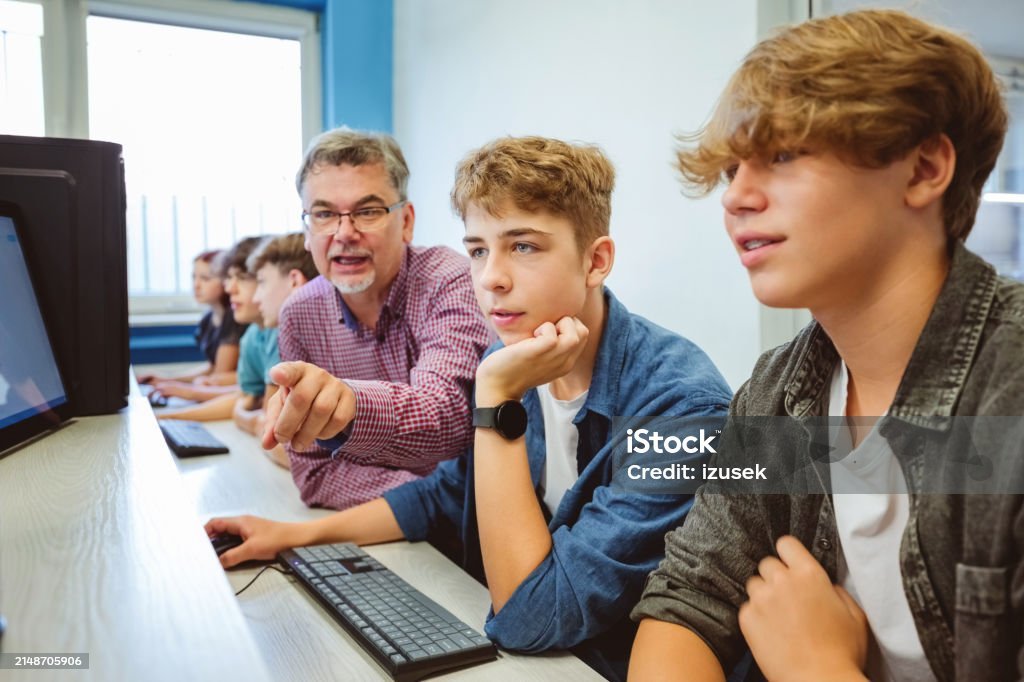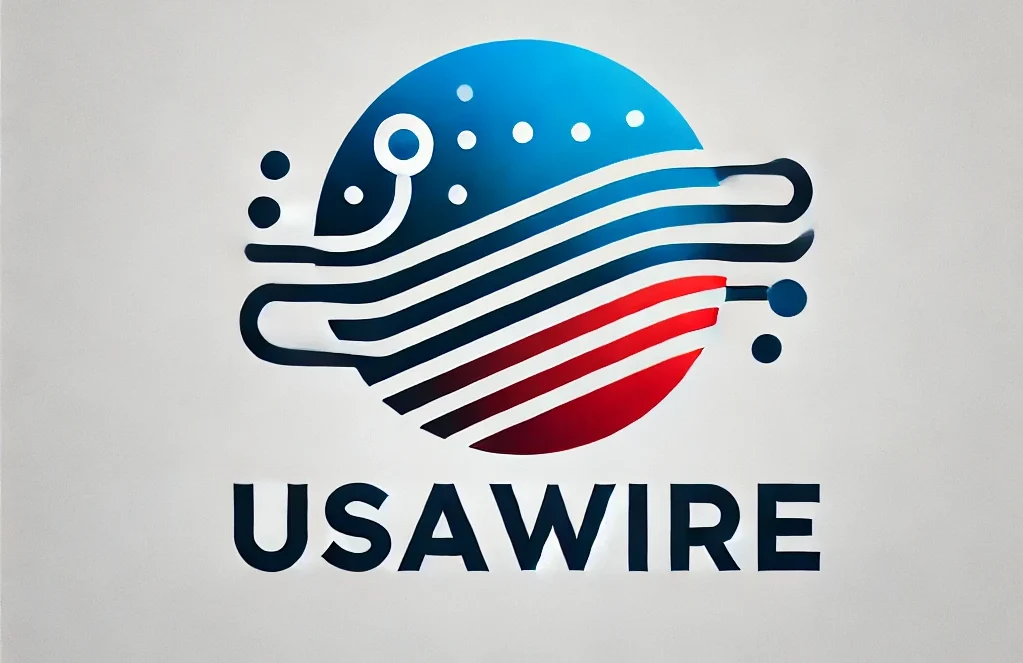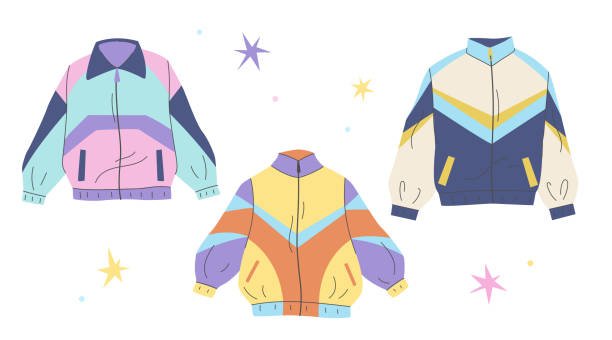
Gen Z teenage high school students coding durning computer lessons, talking with male teacher.
Welcome to our Channel and Follow our content to learn how to become an online teacher, an educational influencer, and create better content.
For example, An online instructor is a Manchester private tutor who teaches over the internet. Pretty obvious, right? We like to use the term “instructor” because it focuses more on the technical side and teaching a specific skill, so as not to confuse it with the social role that the word teacher connotes.

This “parallel” profession has been very prominent in recent years with the so-called gig economy, in several articles it was highlighted that you could teach people with recorded content and earn extra income from it. But this was especially true in 2020, with an increase of more than 400% in new registrations and 55% in the creation of new courses on Udemy alone, according to a report from the platform itself.
An online instructor (or teacher) performs many of the same tasks as a conventional teacher in terms of teaching. The difference is, of course, the means, the student’s objective, and the connection with the audience.
There are instructors for all audiences: children, teenagers, adults, and seniors. Of course, the tools used, the media provided and the entire process may be different. You can be an online instructor exclusively, in the sense of creating your content and stopping there. You can become a tutor, giving instructions to students on previously created content. You can also be an educational influencer, creating content regularly for your followers, like YouTubers and digital influencers on Instagram, for example.
If you are going to work for the corporate market, you will have to develop supplier-specific skills, to meet your client’s demands.

Some of the duties of an online instructor include:
- Define target audience and needs.
- Write the content objectives.
- Organize the course and its units.
- Select media and supplementary materials.
- Design the activities.
- Conduct the instruction.
- Prepare tasks to check to learn.
- Track delivery and provide feedback.
- Make revisions to the materials.
If you still want to act as an educational influencer, you will have to develop new materials and interact with your followers in a much less committed way than an instructor, but probably much more frequently.
Of course, here is a brief general description. We can include more activities or remove some depending on what you intend and are willing to do.
Earnings Expectation:
Before we get started, it’s important to clarify what you can expect as income. This varies greatly, as you can imagine, depending on the field of activity, quality of the course, number of enrollments, and course quality.
Therefore, it is important to keep your expectations in check. Not to mention that those with higher earnings probably end up investing more in marketing. Some platforms do the advertising for you, but take a larger share of the revenue (up to 75%), and others charge 5% per sale (not including card and payment slip fees), but you are entirely responsible for the advertising
Before deciding which platform you are going to choose, which is usually a very frequent initial doubt among our clients, you must first reflect on your time availability and desire for positioning.
Required skills:
Online instructors and educational influencers have to juggle and balance multiple plates at once. It’s worth noting that before you can learn how to become a renowned online teacher or educational influencer, you’ll have to be a student. You’ll come across new techniques and knowledge to improve your positioning – this is a golden opportunity for you to benchmark yourself on the techniques and positive things other teachers are doing – and the features of the platforms you’ll want to use.
Here are five essential (starter) skills that college and high school tutors should possess.
Expertise: What do you bring to the table?
The basics: if you want to teach something, you have to master the area. And a very interesting side is that, as you build your class, you will probably notice new points that you do not master so well and new developments in the area (if you do your research). We once had a client who came to us and said “I know a lot about this area, but I would like your help to cover other points of view”. He hired our services to help him expand his references.
You don’t have to be the world’s number one expert in your field – that will certainly help, but there can only be one number one, right? What has caught my attention among our clients and colleagues is that providing a unique perspective on a subject, when well-founded, has more impact than more of the same.
Understanding Your Future Students: Who Is Your Audience?
With the subject at your fingertips, the next step is to better define your audience. If you want to create content, you need to understand what this audience is looking for and what they need to master after taking your course. It helps a lot if you have already worked with this audience and understand their motivations.
If you have experience selling to this audience, whether products or services, this can be a plus. If it is a new audience, and you already have some experience from afar, we would recommend that you do some good benchmarking and research. This way, you won’t waste so much time redoing your content after feedback.
Teaching Strategies: Mastering the Art of Didactics
It is not enough to master the subject, you have to know how to transmit it. Didactics is concerned, in general terms, with the student’s current knowledge and how to make it to the desired level or state. Therefore, a teacher with a didactic method can guide the student through a sequence of steps that he or she can absorb satisfactorily.
While in-person teaching can make many adaptations, in online teaching you face a barrier: you will probably have to increase the number of lessons to cover as many sequences as possible or make it very, very clear who your target audience is. In this second way, you will narrow down the number of participating students a little.
It is important to emphasize that the concept of a didactic teacher ends up varying from student to student, given that it is not a clearly established concept. Even if a teacher has followed all the teaching steps, their delivery or communication style may not please a certain audience. Therefore, we include charisma as the next step. This ends up being very relevant, especially for educational influencers.
how to charm your audience?
From the title, you can probably tell that most of an online teacher’s communication happens through screens. We didn’t believe there was such a big difference between teaching in person and online until we made the transition. It’s very different in many ways.
You will need to be comfortable with your chosen medium and understand that you will not have to transfer your mannerisms from offline to online: you will have to relearn them and find your online image.
An important point to make is that if your course is recorded, be aware that people have less tolerance for persistent language errors or mistakes when expressing themselves. You don’t have to be precise and concise; you still have some flexibility (this varies depending on the platform and your audience, of course). However, given the greater difficulty students have in asking for feedback to clarify a point when compared to a face-to-face class, your lack of communication will be detrimental to your image.
Make sure you get your message across. You may not get a chance to clarify a point if no one gives you feedback or asks for clarification. This could affect your grade.
Instructional Design: How to Create Effective Content?
Instructional design is a term for pedagogical engineering. It is the process of analyzing the learning needs of your audience and developing a delivery system to meet those needs. This system involves everything from the syllabus, lessons, and tests, to the media and tools.
Self-assessment tool:
As a tool that we send to our clients, we have created a teacher self-assessment tool that covers four areas: Student, Teacher, Classroom, and Transformation. It is very simple: you will do a personal assessment of how you fit into eight questions and leave with your result for each of the areas.
How to take the first step?
If you’re interested in learning how to become an online teacher or educational influencer, the first step is to determine what areas you need to improve and go after them. With so much content online, it won’t be difficult for you to meet the basics so that the lack doesn’t draw attention from your students.
You should define your personal goals: what would you like to achieve by becoming an online teacher? Is it extra income? Would you like to generate qualified leads for your business? Is it market positioning? This will significantly change your direction and the types of content you generate.
How to become an online teacher – the first steps.
Some students learn faster than others, some retain knowledge through visual explanations, and others through practice. Everyone will have their way of learning. An online teacher or educational influencer will have to take all of this into account when planning, producing, and delivering their content. Don’t take this as a trivial task – you will have a lot of responsibility – but it’s nothing you can’t accomplish with a little dedication.
With the internet, online learning has not only become more accessible, but also easier and more accepted. Many have seen traditional certifications as outdated and slow to respond to market needs, which are increasingly demanding and fast-paced. To meet this need, people have taken more into account the words of digital influencers with their unique points of view and practical experiences in the market.
Conclusion
Becoming an online teacher is an Impactful journey that combines expertise, creativity, and adaptability. By mastering your subject, understanding your audience, and employing effective instructional strategies, you can create impactful content and thrive in this dynamic field. Whether teaching skills or inspiring change, your dedication can open new doors for both you and your students.




